Writing a business plan, report, or any other research should be not only comprehensive but also be able to cover everything in detail. However, in order to preface your report and make it more attractive, you need to come up with an executive summary of the whole idea.
An executive summary is a document that provides an overview of the major details contained in the larger report. Remember, not all your readers have the time to go through your long and comprehensive reports. Therefore, in an attempt to attract your readers’ attention, such a summary lets the person know what you have for them and why he or she should read the rest of your report, business plan, or proposal.
Free Executive Summary Templates
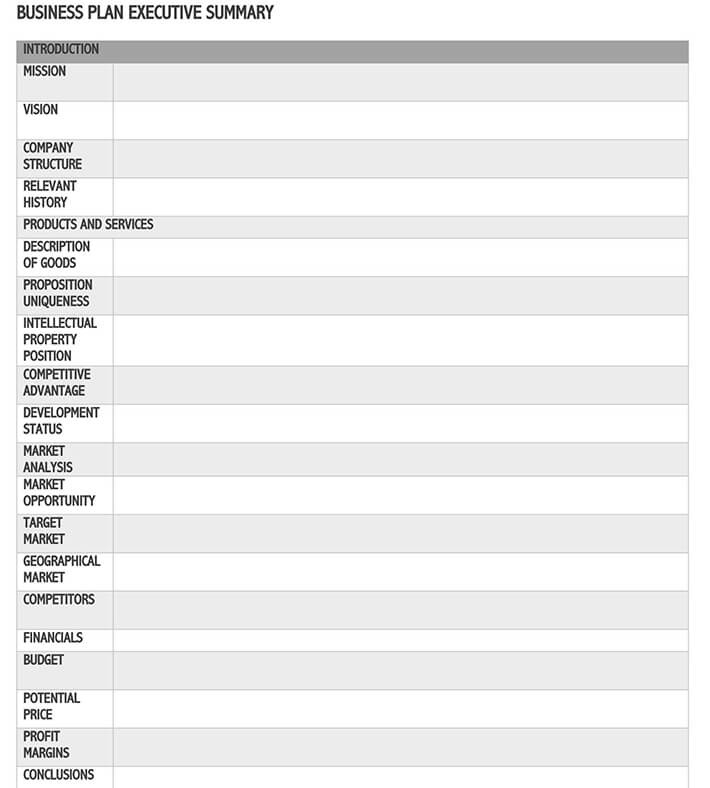
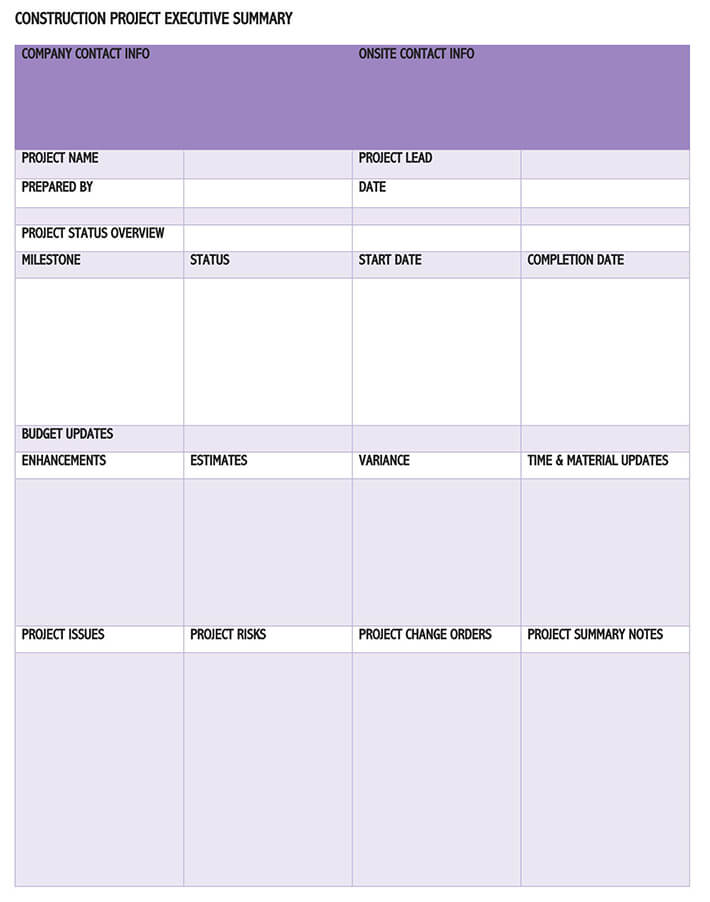
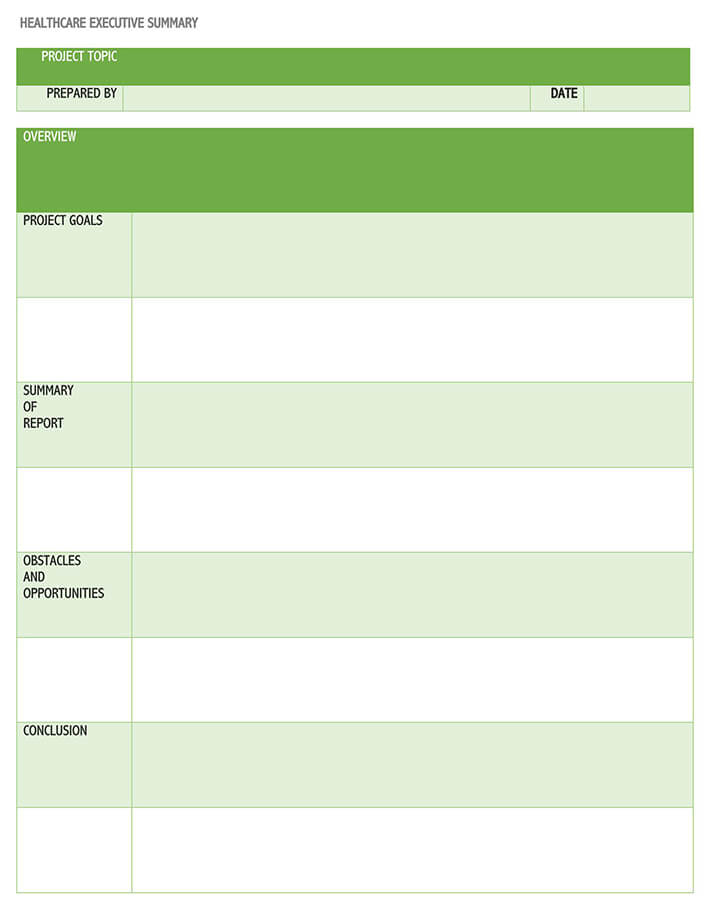
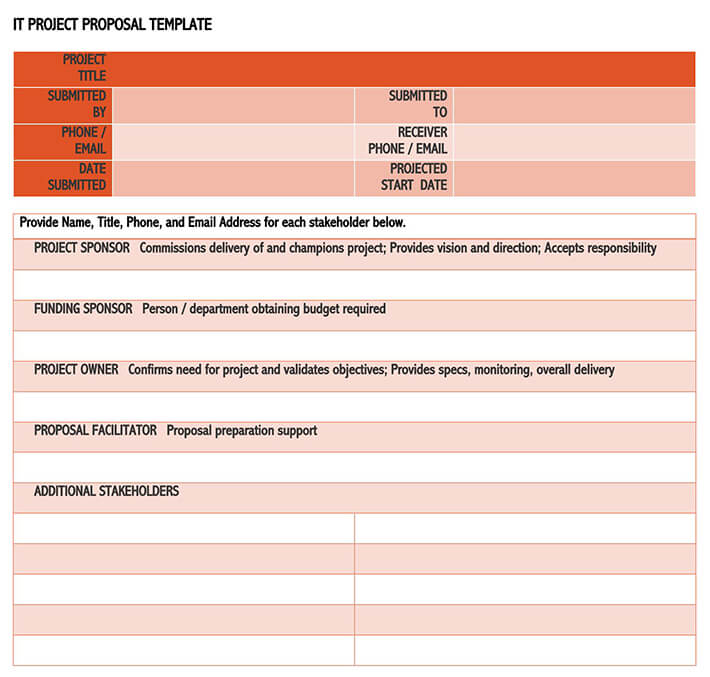
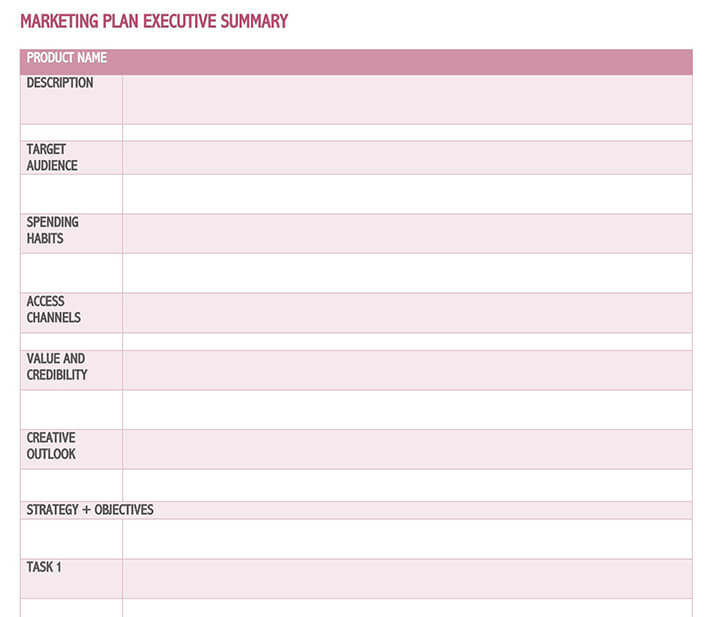
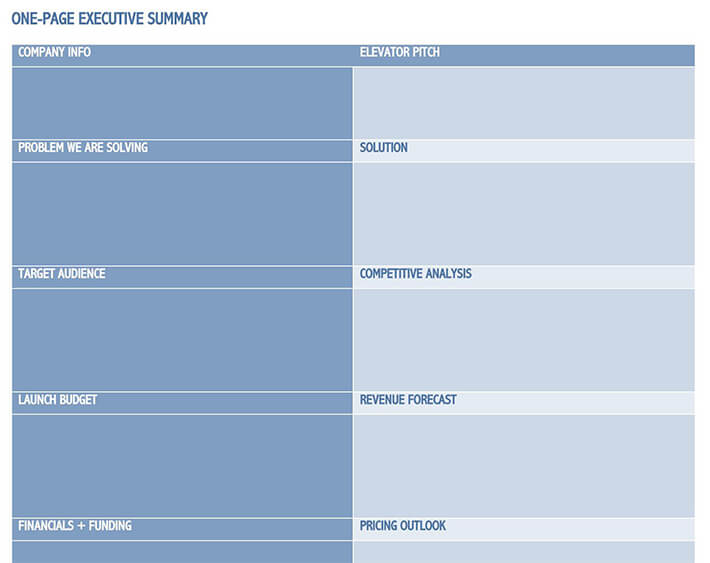
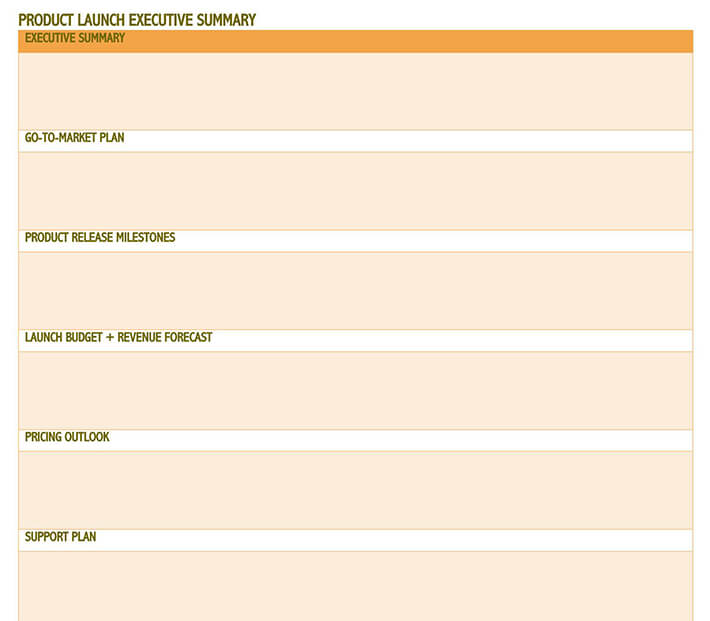
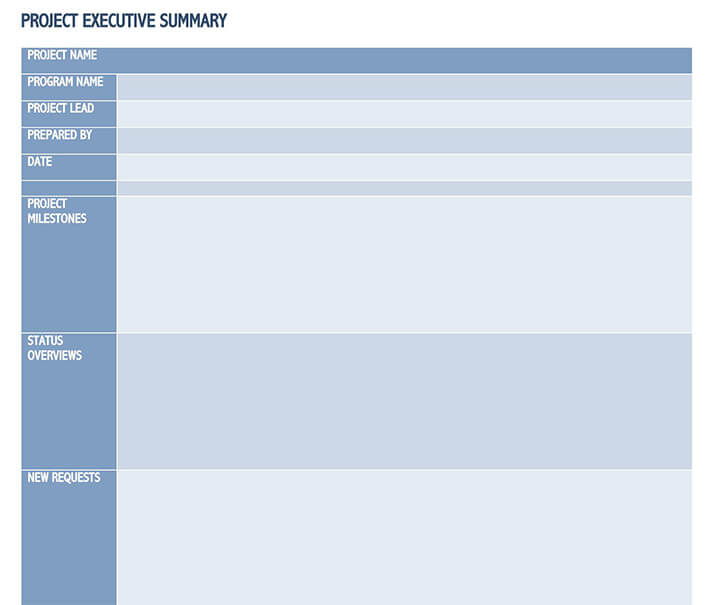
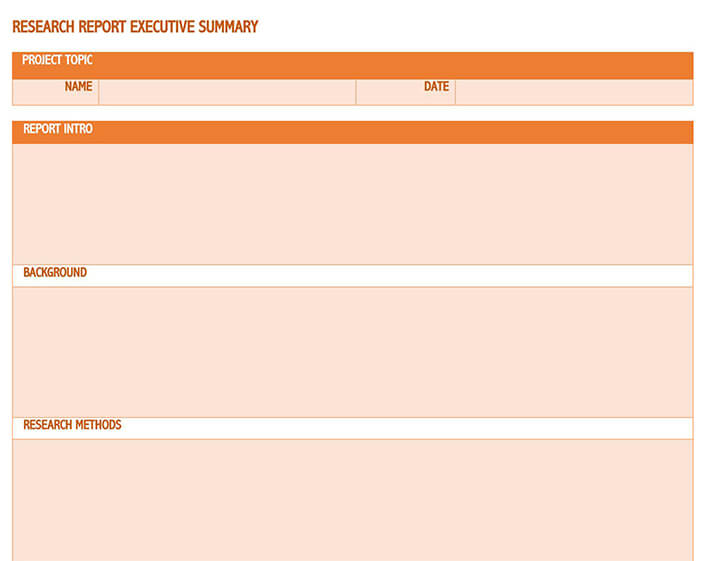
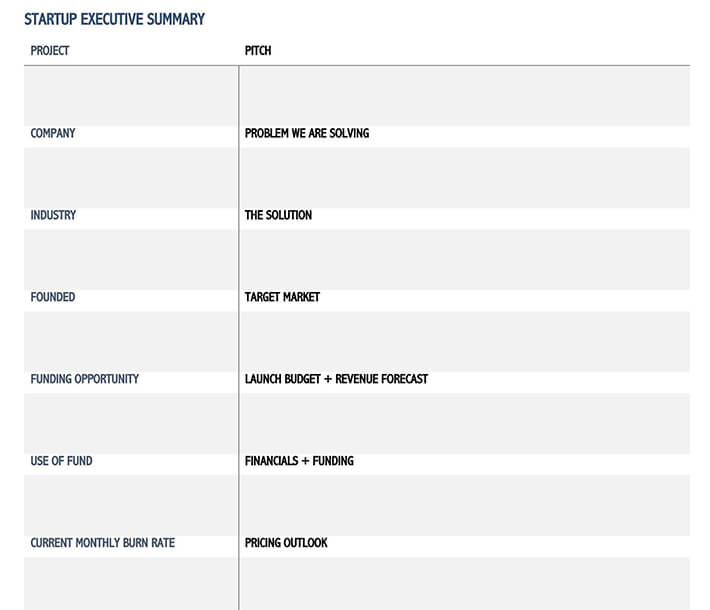
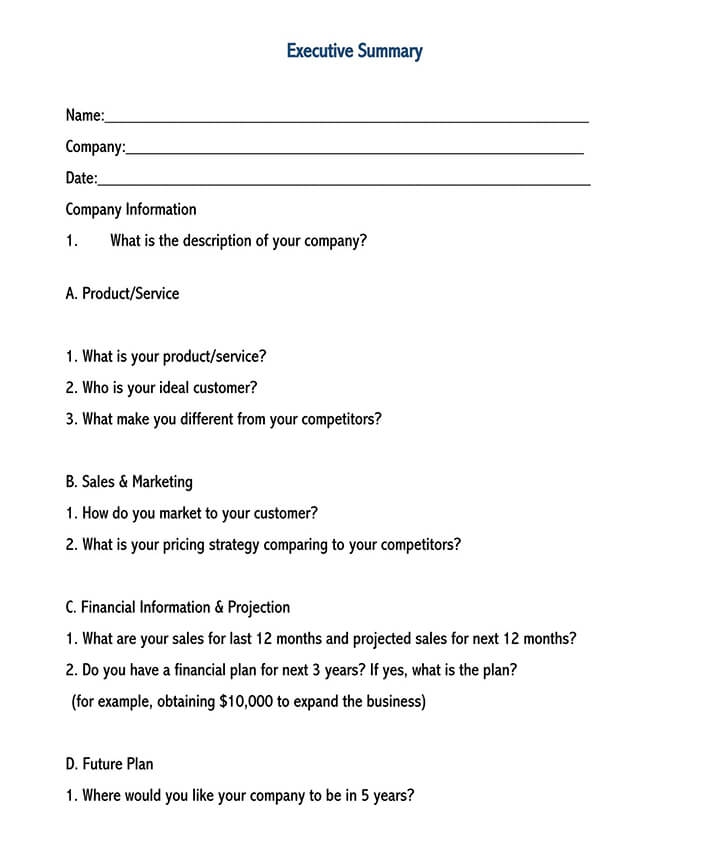
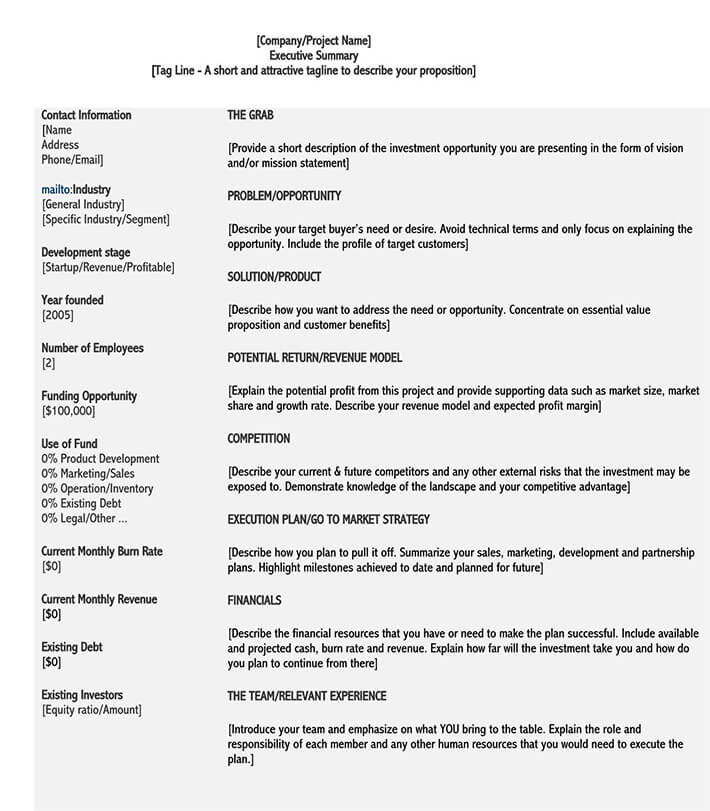
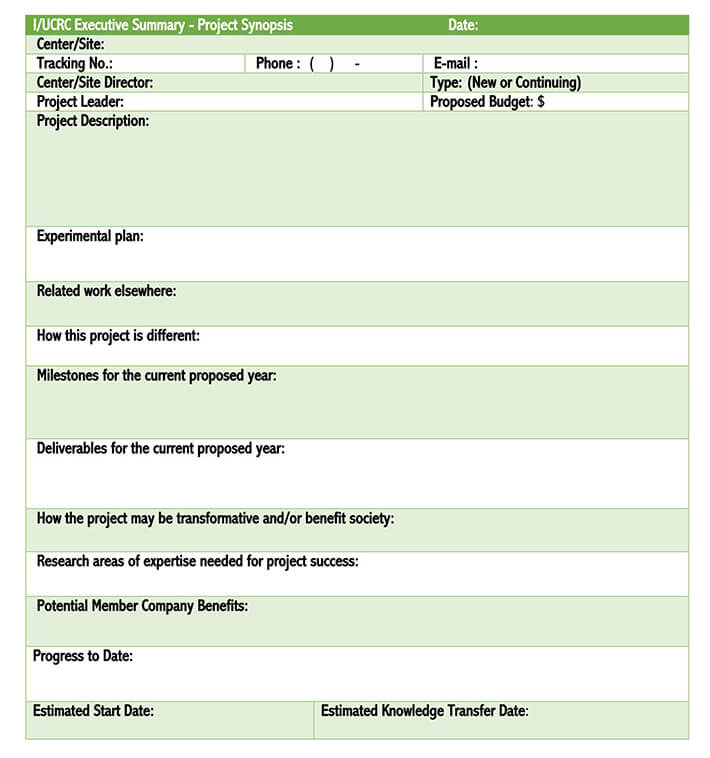
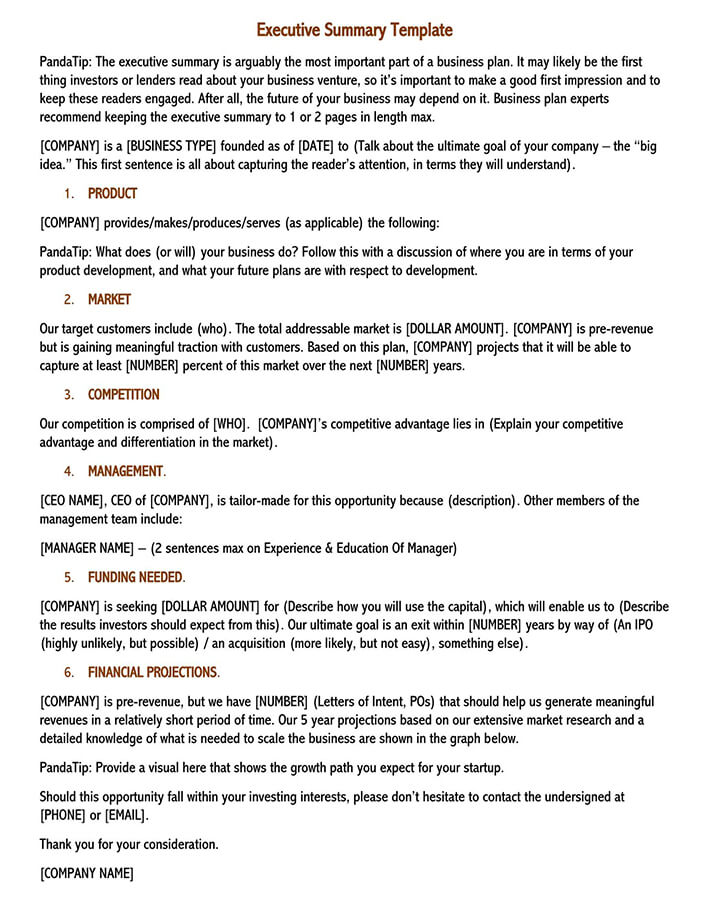
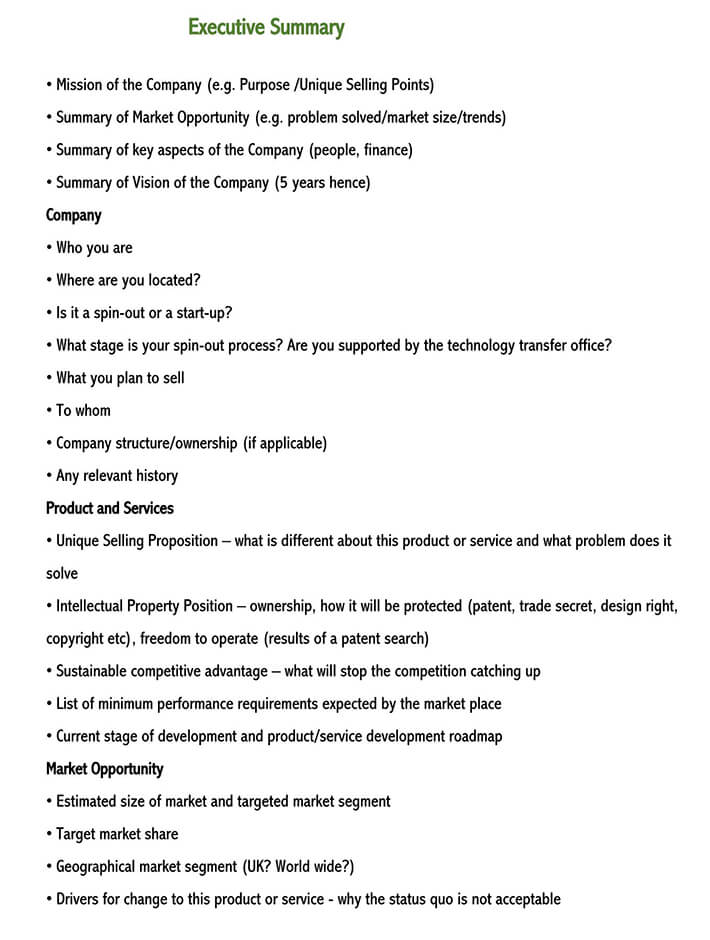
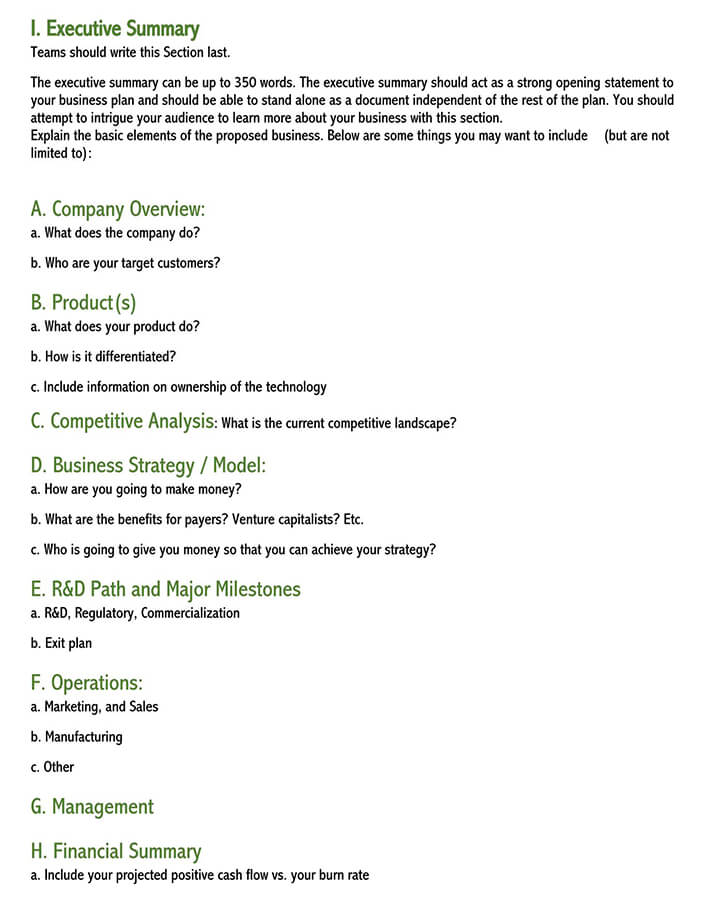
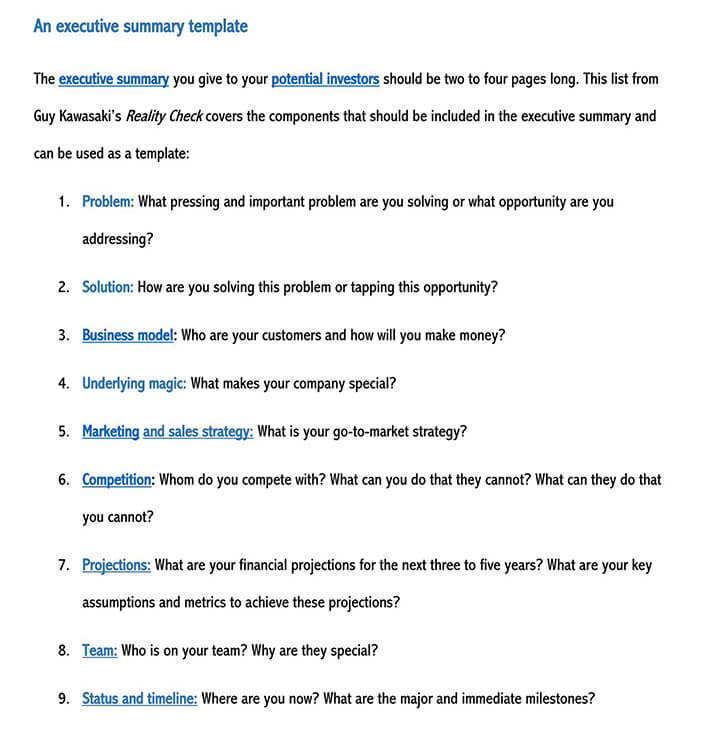
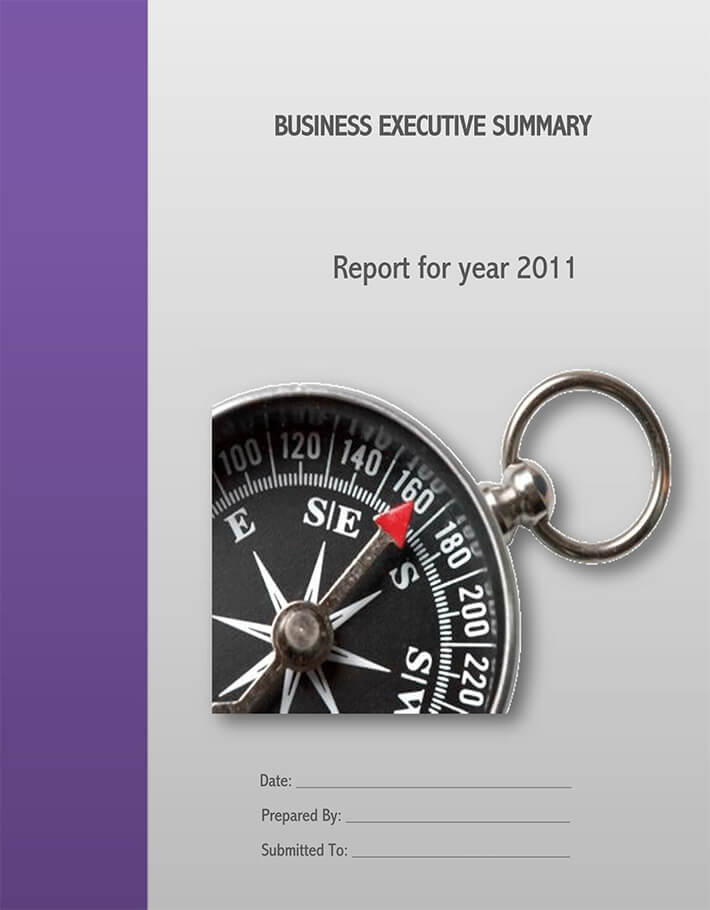
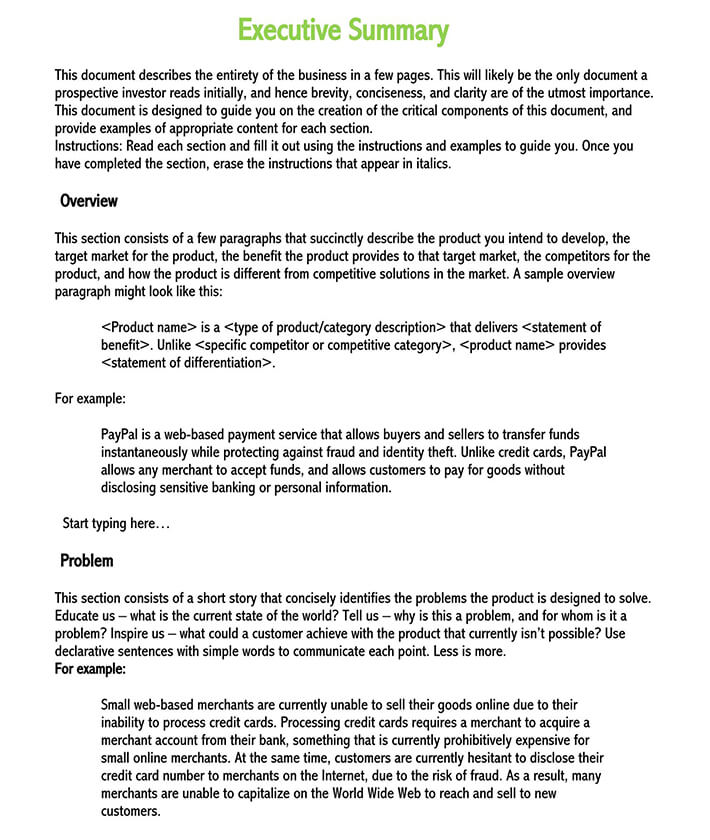

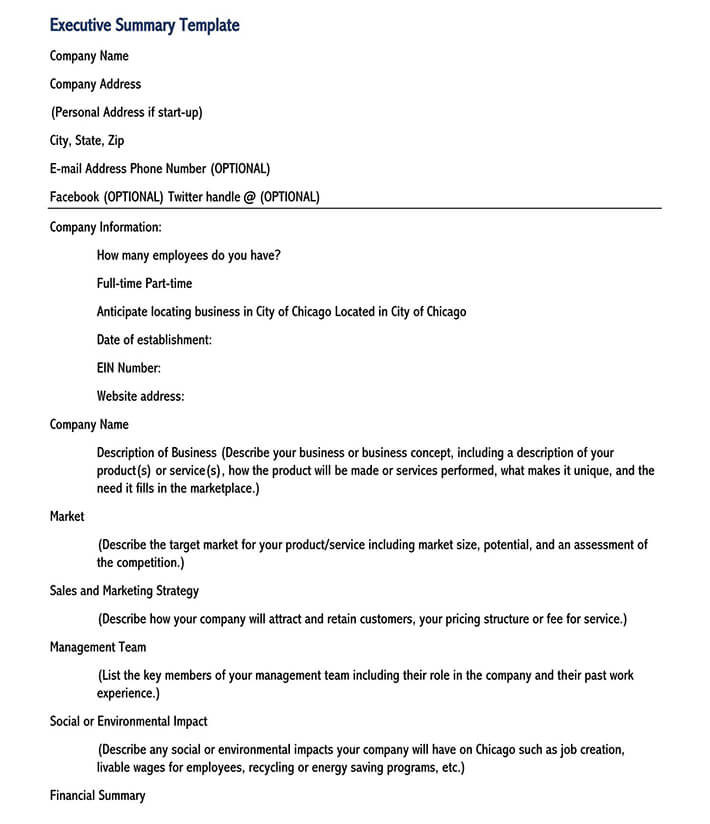
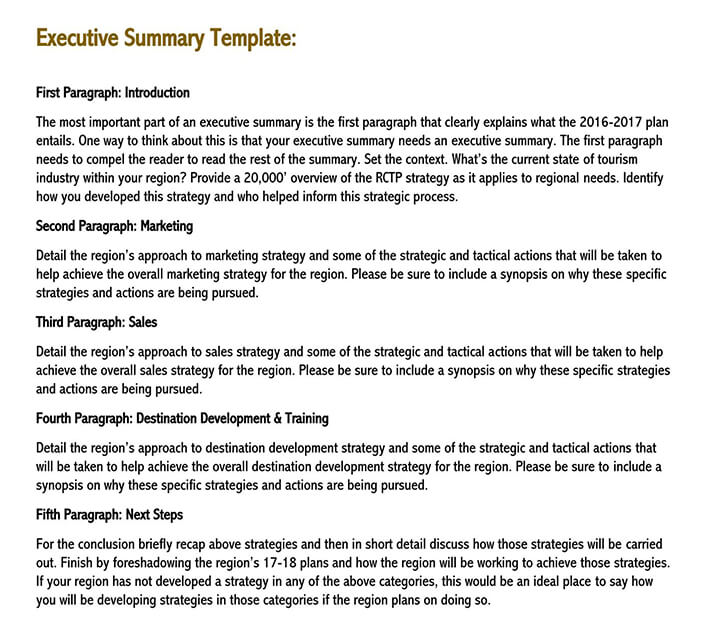
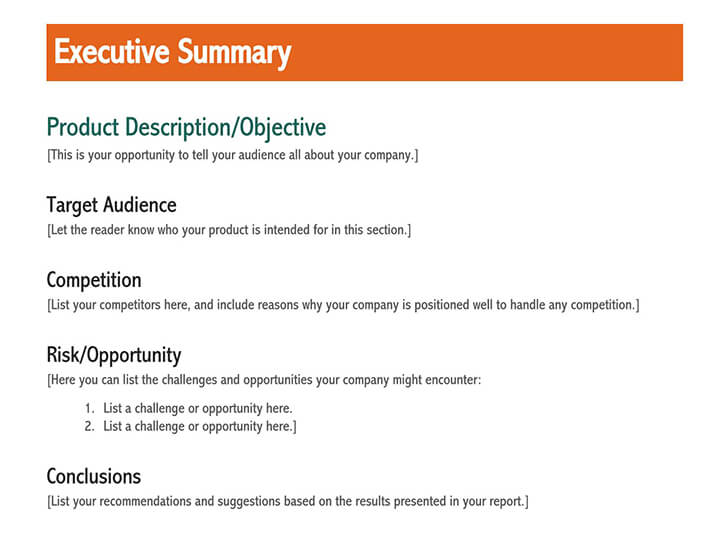

Benefits & Purpose
An executive summary is a versatile communication tool and can be used in various institutions such as healthcare, education, government, finance, nonprofit organizations, and technological sectors, among others. In most cases, executive summaries are used to create short, concise business plans, legal briefs, research reports, project proposals, product launch plans, and more.
A well written summary comes with lots of benefits. First, it prioritizes the reader’s time and reduces the effort required to go over the entire report. Think of it this way; you have an endless list of things to do within a short duration. Someone just presents you with a 100-page document to read over. Well, your guess is as good as mine- it won’t happen! However, if the 100-page document is summarized into let’s say ten pages, it would be easy to read and understand what the original 100-page document was all about. In the same way, this summary helps create value for the reader as a first impression.
What to Include?
Well, the majority of people do get confused about where to start with their executive summaries. When in such situations, don’t let it stuck in your mind.
Ultimately, a well-crafted summary should include the following:
- The name of your company and its location and a brief history.
- A brief description of the company/business mission, vision, and values.
- Products and services: Highlight the problem you intend to fulfill with these products and services.
- Market analysis: Mention how you anticipate to grow your client base and improve your market share over the future.
- Competition analysis: Identify any competitive advantage your business/company holds in the market. At the same time, note down some of the major competitors around.
- Financial considerations, among others.
- Conclusion: Here, you need to recap your findings and make your outcome to be obvious. Attempt to provide a solution that your reader might be interested in being part of.
Tips for Writing a Catchy Executive Summary
In order to write an impressive summary that personifies all the necessary elements, you need to be equipped with some tips and knowledge.
Therefore, the following are some important ways to get started.
- Ensure you tell your story within the summary. This includes what your business does, who is involved, and why you do it.
- Make sure you do prior research about your company/business. Include key findings that are associated with your area of operation.
- Pay more attention to your writing tone. Ensure you use a formal tone that portrays respect not only to your company but also to your audience.
- Avoid the use of cliché language as much as possible. This is because they put off your readers much easily.
- Write the executive summary last. The sole purpose of the summary is to summarize all the ideas included in the original report, proposal, or plan.
Frequently Asked Questions
Usually, the length of the summary varies with the type of content summarized. While some contents require a specific percentage summarized, others advocate for a specific number of pages. Again, the length of the summary will depend on the organization’s requirements.
The tone of writing this summary resonates with the target audience. Therefore, it’s important that you run a background check to determine the type of audience you are dealing with. If it’s official, then be sure to use a formal tone.
As discussed above, the primary role of an executive summary is to get the investor/audience to read your report without much strain.




